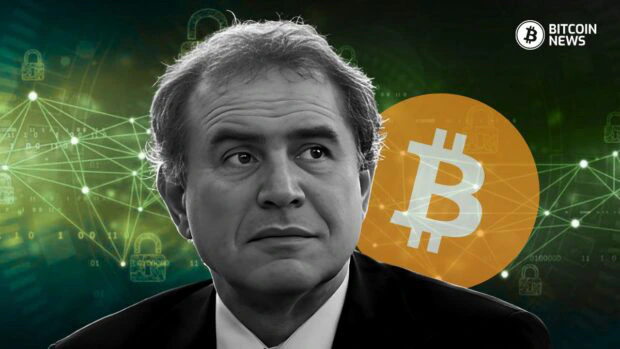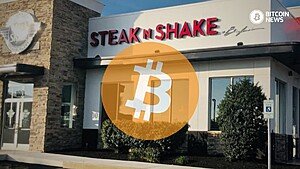Renowned economist Nouriel Roubini has reiterated his critical views on Bitcoin, raising doubts about its decentralization, security, and role as a hedge against inflation.
Known for his pessimistic stance on the digital asset, Roubini has often labeled it as a scam, a sentiment he did not shy away from during a recent debate hosted by financial news aggregator Zerohedge.
During the May 3 debate, where Bitcoin was juxtaposed against gold, Roubini didn’t mince words in dismantling the foundational principles of the leading digital asset. He argued that Bitcoin’s security and scalability promises fall short compared to traditional monetary systems.
One of Roubini’s main concerns revolved around Bitcoin’s security landscape.
He highlighted the irreversible nature of transactions once private keys are compromised, contrasting it with traditional banking systems that offer recourse options in case of theft. This, he argued, leaves Bitcoin holders vulnerable to a permanent loss of funds.
Moreover, Roubini questioned the concept of Bitcoin’s decentralization, dismissing it as “nonsense.” His argument was based on the concentration of mining power among a few significant players, which he believes undermines any claim to decentralization.
Related: Bitfinex Warns Bitcoin Halving Could Lead to Mining Centralization
He stated:
“In the traditional financial system, there’s massive scalability. Yes, we have a centralized system. Bitcoin, first of all, is not secure.
It’s not even decentralized […] This idea of decentralization is nonsense. It’s neither decentralized, secure, nor scalable. It’s three NOs.”
Nouriel Roubini: Bitcoin is not Hedge Against Inflation
Addressing Bitcoin’s supposed role as a hedge against inflation, Roubini was unequivocal in his dismissal.
He argued that Bitcoin’s performance during inflationary periods contradicts its narrative as a hedge asset, citing instances where bitcoin prices plummeted while gold soared. He argues:
“Every time the stock market goes up Bitcoin goes higher but every time it falls, [Bitcoin] falls much more than that so first of all it is not a hedge against inflation.”
Furthermore, Roubini rejected Bitcoin as a viable alternative to traditional finance, citing its inefficiency in handling large transaction volumes. He compared storing bitcoin to burying gold in the ground, describing it as impractical and cumbersome in the digital age.
Peter Schiff, another participant in the debate, echoed Roubini’s sentiments, dismissing Bitcoin as “digital fool’s gold.” He advocated for traditional investments like gold and criticized Bitcoin’s volatility and lack of intrinsic value, stating:
“If you’re worried about inflation and monetary debasement […], you don’t have to buy Bitcoin or one of these Bitcoin ETFs when you can actually buy physical gold or physical silver.”
Interestingly, Roubini has previously labeled bitcoin as “totally corrupt” and warned of a possible “crypto apocalypse” due to regulatory crackdowns.
Despite his pessimistic outlook, Bitcoin’s supporters remain bullish on its future. SkyBridge Capital’s founder, Anthony Scaramucci, argues that Bitcoin’s decentralized nature, limited supply, and growing institutional adoption will drive its long-term value.










